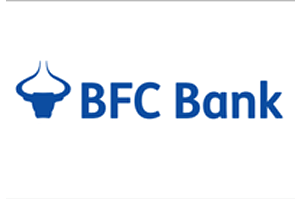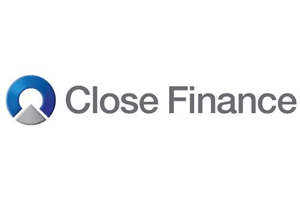High Interest
Interest Rates
Before a lender is permitted to lend you money, they must go through specific processes to make sure that you can afford the cost of the loan. If they don’t ask specific questions, it is possible that the loan was mis-sold, the interest rate was too high, or they are guilty of irresponsible lending.
Search for a Company to begin a Claim
There are certain checks that lenders must do to make sure that they are keeping to consumer protection regulations. By law, loan companies must be sure of these four things:
- You can repay the loan without undue difficulty or hardship
- You won’t have to take out additional payday loans to pay the interest on another
- You don’t have too much debt before taking out the loan
- You aren’t struggling to pay other bills or monthly payments before the loan
The lender must also make sure that neither they nor another lender encouraged you to take out additional loans, either to pay off old loans or alongside them.
If any of these rules are broken, then the company might have broken the law, and there is a chance you could be owed compensation.
Consumers are also advised to make complaints if they felt uneasy about taking out the loan, the person who sold it to you didn’t explain it to you, or they didn’t listen to your concerns. If any of these things are right, there is a chance the loan was mis-sold to you, and you deserve compensation.
Payday Loan Interest Rates
Interest rates that payday lenders can offer are tightly restricted by the Financial Conduct Authority (FCA). On top of asking the usual questions and being sure that you can afford the loan, a payday lender must charge lower interest rates than before, not charge extortionate late fees and limit the total amount you can owe. If they break these rules, there is a good chance that you will be able to claim a mis-sold loan.
- According to the laws that were imposed in 2015, interest rates on payday loans cannot exceed 0.8% per day.
This means, if you borrow £100, you can only be charged up to 80p per day that you borrow the money for. In APR (yearly interest) terms, this is 292%, which is much lower than the rates in excess of 4,000% some payday companies charged previously.
- If you default on a payay loan (not pay it back on time) they are no longer allowed to charge you more than is reasonable.
The law limits late fees to just £15, which is a big win for the consumer. Loan companies caught charging more than this in fees can owe compensation to customers who have been charged these high costs.
- Lastly, payday loans are restricted in the total amount in which you can be forced to pay back.
No matter how much you borrow, or for how long, they can only charge you a maximum of 100% of what you initially borrowed. This means, if you borrow £100, lenders can charge you at most another £100 on top of the money you have to pay back. This includes late fees and interest.
If a payday lender has tried to make you pay more than you think they should have done, or if you have already paid more to them, then it’s best to see if you can claim them.
What is Usury?
Lending money at an interest rate which is excessive is called usury. Usury laws were abolished in 2002. While this was not much of an issue at the time, given that the economy was doing well and consumer loans were fairly low-rate, it lead to the rise of payday loans. Now that there is no such thing as a legal interest rate, there is a more significant problem with payday lenders and door-to-door loans.
Irresponsible Lending and Excessive Interest on Loans
In some countries, such as the United States, high-interest rates are limited. The limits can vary for different types of loan, but generally, these are around 24 per cent. In the UK, there is no limit on the legal rate of interest on regular loans, but lenders must make sure that the fees and interest are affordable.
Before you can sign a loan agreement, the lender must make sure that you can afford the loan. One of the ways they can do this is to reduce the amount of interest that you must pay, but increase the time that you will repay the loan over.
Even if you didn’t end up in financial hardship and you could afford the loan, if the lender didn’t make sure of this then they might have mis-sold you the loan, and you might still be able to claim.
Credit Card Interest Claims
Interest paid on credit cards is regulated by different laws to the interest on loans. Before 2006, there were no laws regarding the fees that credit card companies could charge for late repayments.
The Office of Fair Trading (OFT, which is now replaced by the Financial Conduct Authority (FCA)) set standards that saw most credit card companies reduce their payments to just £12 or less. Even if some, or all, of your debt, is from before 2006, you can still claim to have some, or all, of your money back.
There is a chance that any fees over £12 charged since 2006 in England, Wales and Scotland for late repayment of credit can be claimed for as well. Sometimes, to avoid going to court, a card company will out of courtesy refund some of the initial £12 as well, even if this was written into your agreement.
Credit card providers also sometimes charge an amount of interest higher than agreed, or higher fees than are in your contract with them. If that is a case, they will be liable to refund the money they took from you, even though it was done in error.
Claims and Compensation Interest Rates
Just like when you borrow money when you are owed compensation you can also have interest payments paid back to you. The rate of interest charged on compensation claims can be up to 8%
APR, meaning that if a company owes you £100 from a year ago, you can claim an additional £8 for having to wait. Over three years, the same interest would be about £26.
While some people might then think that waiting to claim can be a good idea to maximise the payout when you charge interest, this is not the case. The longer you wait to claim, the less chance you have of being successful. To have the best chance of getting back the money you are owed, you should act now.


























































